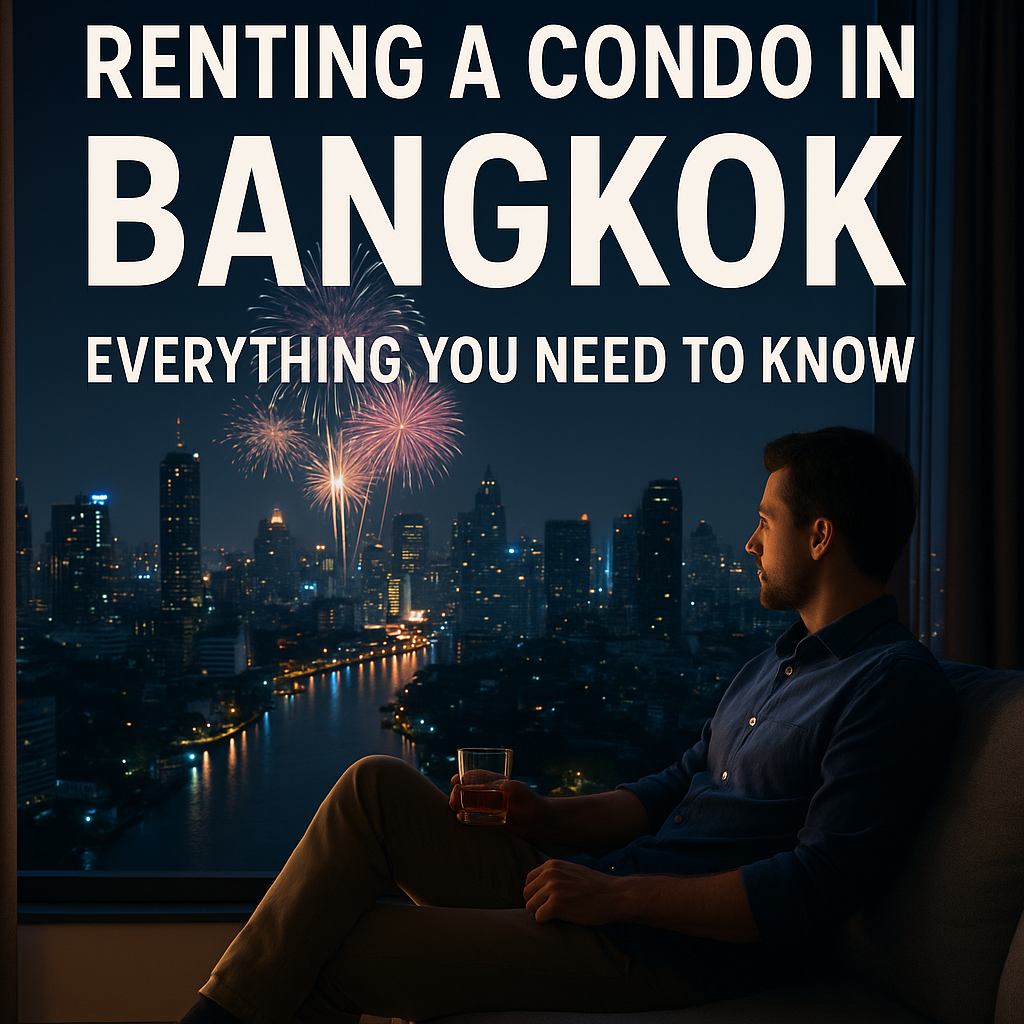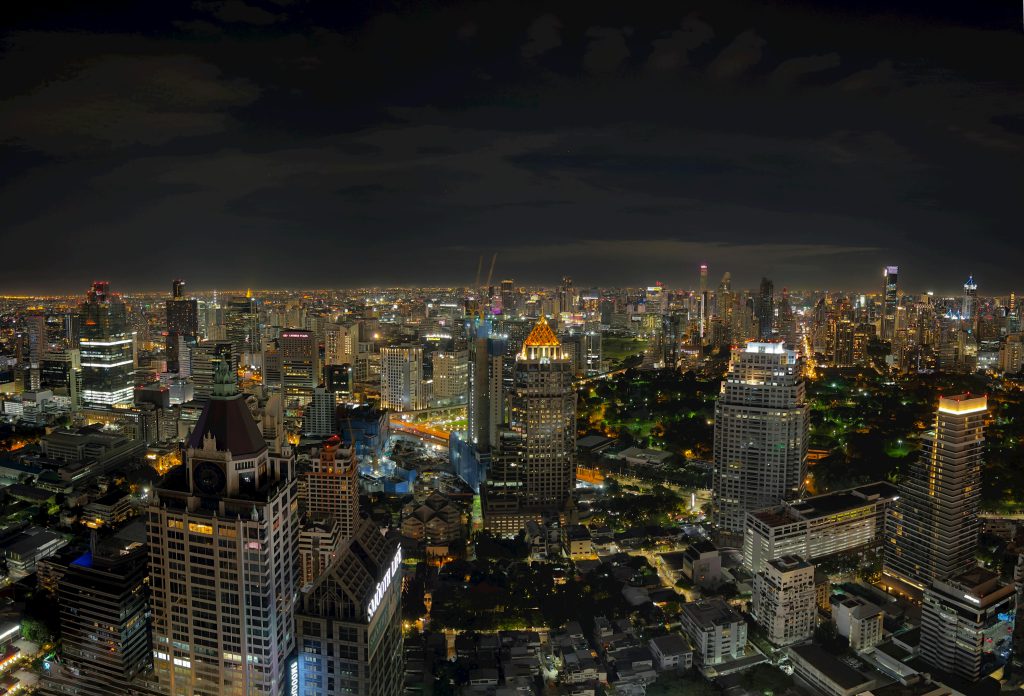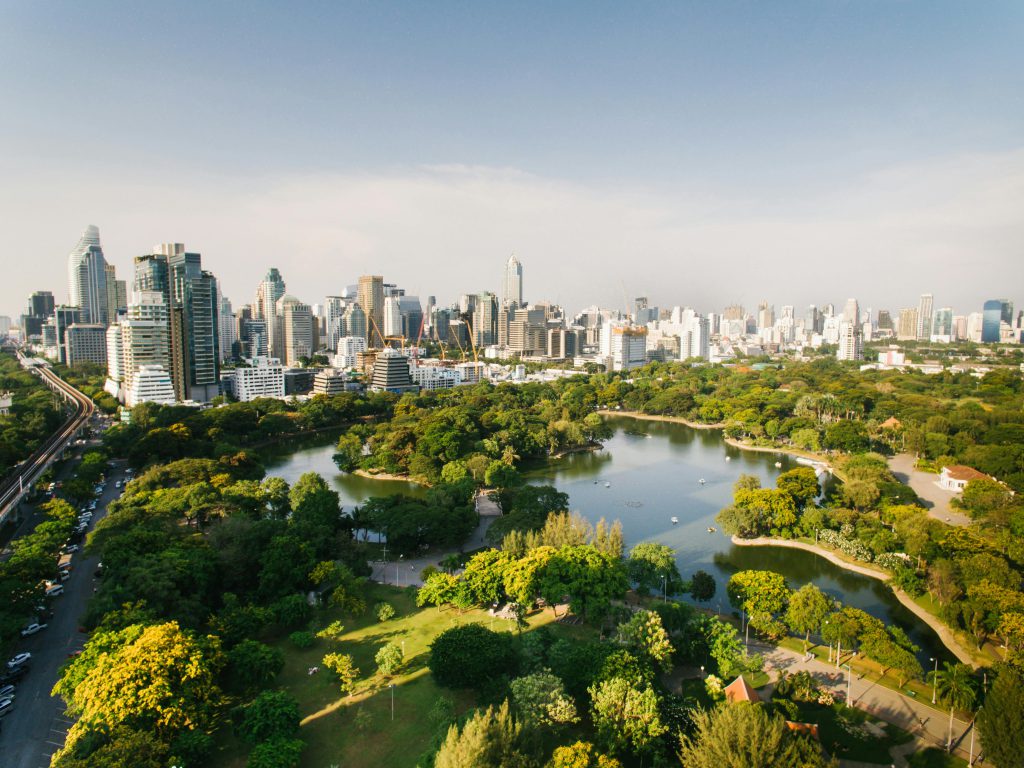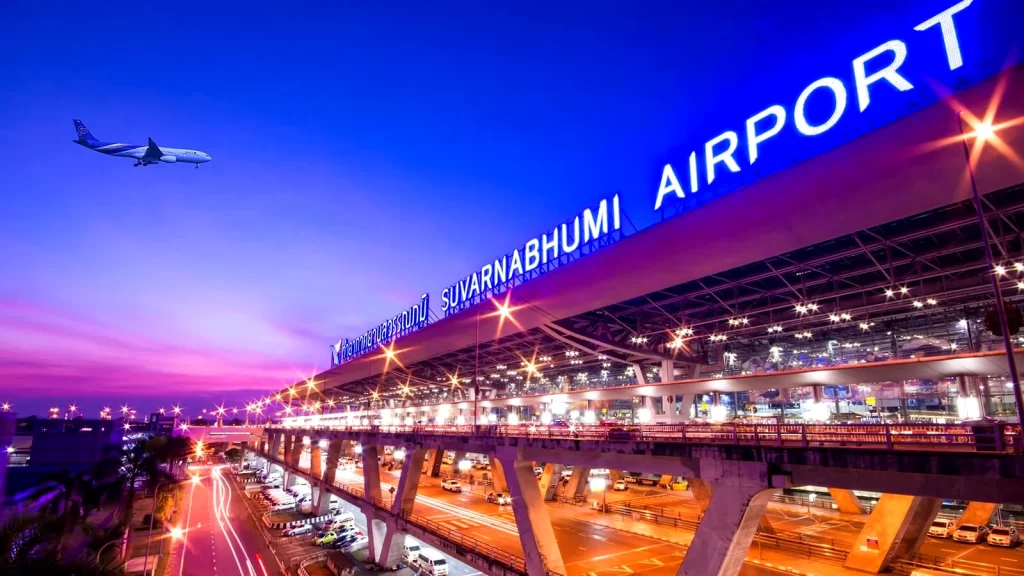
So, you’re thinking about moving to Bangkok, huh? Maybe for work, adventure, or just to switch things up with a new lifestyle in Southeast Asia. Either way, you’re probably wondering: How do you rent a condo in Bangkok without getting scammed, overpaying, or signing something shady that’ll bite you later?
Trust me, I’ve been there. I’ve lived in Bangkok for over a decade, and in that time, I’ve seen it all: the beautiful high-rise units with skyline views… and the sketchy rentals with mystery smelly plumbing. Whether you’re looking for a long-term condo rental in Bangkok, something pet-friendly, or just a good value in a great neighborhood, it’s easy to get overwhelmed if you don’t know how the rental market in Thailand works.
That’s exactly why I put this guide together. If you’re an expat, digital nomad, or remote worker trying to figure out the Bangkok apartment rental scene, this post will walk you through the process and what to watch out for. No fluff, no outdated Reddit advice. Just real, practical info you can use.
First Things First: How Long Do You Want to Stay?
Alright, let’s talk leases because this is where a lot of people get tripped up when they’re trying to rent a condo in Bangkok.
In Thailand, nearly every condo rental is going to come with a standard one-year lease. That’s just how the rental market works here. It doesn’t matter if it’s a studio in Sukhumvit or a high-rise by the river, 12-month contracts are the norm.
Can you find a six-month lease in Bangkok? Yeah, sometimes. But it’s not common. And when you do find one, it usually comes with a higher monthly rent—kind of like a convenience fee for the shorter term. Most landlords just don’t want the hassle of finding a new tenant every few months.
Now, if you’re thinking even shorter. like three months or just a few weeks than you’re basically in Airbnb or short-term rental territory. And here’s the thing: a lot of those short stays in condos aren’t technically legal in Thailand unless the building is licensed like a hotel. So you’ve got to be careful with that route. Or if you rent an AirBNB you might not get access to all the areas as they have face scanners and only long term renters get their face scanned.
Bottom line? If you’re planning to live in Bangkok for a while, be ready to sign a one-year lease. If you plan to stay shorter look into Hotels and Servced apartments and expect to pay at least double than what you would pay per month on a yearly contract. That’s just the way things roll here.

Okay, So How Do You Actually Find a Place?
Alright, so when it comes to actually renting a condo in Bangkok, you’ve basically got two ways to go about it.
Option one is to go through a rental agency and honestly, this is super common here. It’s usually free for tenants because the landlord pays the commission. So you get someone who knows the area, speaks Thai, and can help you set up viewings, negotiate, and handle the paperwork. It’s a solid, stress free route, especially if it’s your first time renting in Thailand.
Option two? You go full DIY. That means walking into the juristic office which is basically the building’s management office and asking if any units are available for rent. This works better if you’re already in the city and can go building by building in the areas you like. It’s old school, but it works especially if you’re trying to find a deal or avoid agency-filtered listings.
Now, if you’re just starting your search, I’d recommend going online first—especially if you’re still overseas. Start browsing around two months before your move-in date. Some of the best condo rental websites in Bangkok include DDProperty, PropertyHub, and Hipflat. These platforms can give you a feel for prices, layouts, and which neighborhoods fit your style.
But here’s the catch and it’s a big one: a lot of those listings are outdated. Sometimes the units are already rented, or the photos don’t match reality. So yeah, use these sites to scout the condo buildings and Bangkok neighborhoods you like, but don’t get too attached to anything you see online.
Once you’ve narrowed things down, that’s when you reach out to an agent or go building hopping in person. That’s where the real search begins.
Should You Use an Agent?
Yeah, in most cases, I’d say working with a property agent in Bangkok is a smart move especially if you’re new here. First of all, they don’t charge you anything as their fee comes from the landlord. So you get someone to guide you through the whole condo rental process in Bangkok, for free. Not bad, right?
Another big plus? They speak Thai, which can be a huge help when it comes to negotiating rent, dealing with the building staff, or handling paperwork. And most good agents will give you a lease agreement in both Thai and English, which is honestly a lifesaver if you’re not fluent. If you do it alone the agreement might be only in Thai and you can’t be sure the English version is identical to the Thai one which is the official one.
But it doesn’t stop there as they’ll usually help with TM30 registration (that’s the immigration thing you need to do after moving into a new place), they’ll check over the unit with you before you move in, and if something goes wrong during your lease like the air con breaks or your landlord disappears they can often step in and help sort things out.
That said, not all agents are created equal. Some are flaky or just trying to rush a deal. So definitely do a bit of research and look for agents with good reviews and a solid track record.
What’s the Difference Between a Condo and a Serviced Apartment?
A serviced apartment is basically like a hotel that you can live in. You usually get weekly cleaning, fresh towels and linens, Wi-Fi is included, and sometimes even breakfast or a little gym access. It’s super convenient, especially if you’re only here short-term or don’t want to deal with setting anything up yourself. But there’s the catchm it comes at a higher price. You’ll probably pay more per month, and the utility bills (like electricity and water) are often marked up too, compared to what you’d pay with a regular condo. Plus, the design and layout options can feel a bit… generic. Like, you get what you get.
Now, a condo is what most long-term expats in Thailand go for. Condos are individually owned units within a larger building, so every one is a bit different in style and layout. Almost all come fully furnished, and the big plus is that you’ll pay standard government rates for electricity and water, which are way cheaper than the marked-up rates in serviced apartments. Sure, you might not get cleaning or Wi-Fi included, but you usually get more space, more personality, and a better deal overall.
So, if you’re planning to stay for a while and want to live more like a local, renting a condo in Bangkok is probably your best bet.

What About Internet and Utilities?
First off, most condos don’t come with Wi-Fi pre-installed. I know, you’d think internet would be ready to go, but nope. You’ll need to set it up yourself. The process is pretty simple though. Just head to any major mall and look for one of the big telecom providers like AIS, True, or 3BB. Bring your passport and your rental agreement, and you’re good to go. Monthly plans usually cost between 500-1000 baht for fiber high-speed internet, and there’s typically a one-time installation fee of about 1,000 baht unless you sign a 24 month contract. You can also add a TV package if needed or just get the internet package. I personally use AIS FIBRE and i am very satisfied the service and speeds. 500Mbps and up is the norm here.
Now, onto electricity and water. These aren’t usually included in your rent, so they’re billed separately. For electricity, you’ll get a monthly bill directly from the Metropolitan Electricity Authority so it’s based on government rates, not some random markup. Water is billed by the condo building itself, and it’s usually super cheap unless you’re running a small aquarium or something.
You can pay most bills super easily. Just head to any 7-Eleven (yes, really), or use your Thai banking app if you have one. Some buildings even let you pay at the condo’s juristic office, which can be convenient. Water is usually paid at the condo juristic office.
So yeah, nothing too scary, but it’s not quite as plug-and-play as some people expect. Just a few errands to get everything sorted and you’re all set.
Can I Bring My Dog (or Cat)?
Quick heads-up if you’ve got a furry friend coming with you. Most condos in Bangkok are not pet-friendly. It’s the exception rather than the rule. And even if a building does allow pets, there are usually a bunch of rules—like size limits, breed restrictions, or even extra cleaning fees. Many Thai prople keep small pets like cats in secrecyng but in reality everyone knows 😀
So if you’re looking for a pet-friendly condo in Bangkok, be ready to do some extra digging. You’ll need to make sure both the landlord and the building management are okay with it. Sometimes the landlord is cool with pets, but the building says nope so double-check both. And most importantly: get it in writing, either in your lease or a separate memorandum of understanding. Verbal “okays” don’t count when things go sideways.
Now, if you’re a dog owner, a pro tip: look around the Benjakitti Park area. It’s one of the few places in central Bangkok that has a dedicated dog park which is super rare in this city. It’s a great neighborhood for pet owners, and there are a handful of buildings nearby that are more open to having pets.
It’s totally possible to bring your pet to Bangkok, but it’s gonna take a little more work than just picking the first nice condo you see on a listing site.
What Do I Need to Rent?
So, when you’re ready to rent a condo in Bangkok, here’s what you’ll usually need to have on hand:
First off, a copy of your passport and visa this is standard everywhere. If you’re working here, they might also ask for your work permit, so have that ready just in case.
Most landlords or agencies will want a booking fee, which is typically about one month’s rent. This locks the unit for you while you sort out the paperwork.
Before you sign the full lease, you might be asked to sign something called a Memorandum of Understanding (MOU)—think of it as a kind of “pre-agreement” to make sure everyone’s on the same page.
Then, when it’s time to actually sign the lease, be prepared to pay a two-month security deposit + the booking fee which was for the first month’s rent.
So yeah, in total, you’re looking at about three month’s rent upfront. That deposit is there to cover any damage beyond normal wear and tear. If you keep the condo in good condition, you should get that deposit back within 30 days after you move out.
It might sound like a lot upfront, but it’s pretty standard for renting condos in Thailand, and it helps protect both you and the landlord.
What If I Need to Leave Early?
One thing you’ve gotta know about renting a condo in Thailand: leases here aren’t very flexible. If you decide to bail early before your one-year lease is up, chances are you’ll lose your deposit.
Some savvy renters try to negotiate clauses like a lease takeover, which means someone else can step in and take over your lease if you have to leave early. Others ask for a diplomatic clause this is common if you’re working here and might get transferred abroad.
But here’s the catch: don’t expect these clauses to be standard or easy to get. You have to negotiate and get any special conditions written into your contract before you sign. Otherwise, you’re probably stuck with the full lease term.
So, if flexibility is important to you, make sure you bring it up early in the process!
Who Pays for Repairs?
Generally speaking:
- The landlord covers major repairs, unless you broke something.
- You’re expected to handle small stuff like changing lightbulbs or fixing clogged drains.
- And yep, you’re usually expected to clean the aircon every 6 months. It’s about 500–800 baht per unit.
Also, things like common area fees for the gym, pool, security are all paid by the landlord, not you.
How Do I Pay Rent?
Most landlords will ask for a Thai bank transfer, which is the easiest option if you’ve got a Thai bank account. Otherwise, you might be able to use Wise, an international wire, or even cash at an ATM. You can do alot on ATMs in Thailand so if you have cash you can deposit it directly into the landlord’s account and you will get a slip which you can take a photo of and send to the landlord.
Can I Negotiate the Price?
Absolutely, negotiating the rent is totally doable especially if the unit has been sitting empty for a while. A good rule of thumb is to aim for about 10 to 20 percent below the asking price. Just be polite but firm when you make your offer.
You actually have the most bargaining power if you’re dealing directly with the landlord and skipping the agent, but even if you are using an agent, it never hurts to ask for a discount. Sometimes they can pass your offer along or help negotiate on your behalf.
Remember, a little negotiation can go a long way when renting a condo in Bangkok, so don’t be shy about it!
Last Few Things to Watch Out For…
Before you actually move into your Bangkok condo, make sure you do a thorough check of the place. Ask for the inventory list and go through it carefully and make sure every item listed is actually there and in working order. Test the lights, flush the toilets, run the air conditioning, open the windows and basically, give everything a quick test run.
Don’t forget to take photos or videos as proof of the condition when you move in. This will save you a headache later if the landlord tries to blame you for something that was already broken.
And here’s a big one. Read through the contract carefully and watch out for any weird clauses. Some landlords sneak in rules like “no overnight guests” or “no decorations.” If you spot anything like that, don’t be shy and ask your agent to get those clauses removed or clarified before you sign.
Doing this upfront can save you a lot of trouble and make your condo rental experience way smoother.
TLDR: Renting a Condo in Bangkok. What to Remember
- Expect a 1-year lease (6 months is rare)
- Use an agency if it’s your first time
- Do your own due diligence: research areas and buildings, not just listings
- Be ready to pay 3 months upfront
- Negotiate, especially if the unit’s been vacant
- Take your time as good deals don’t always look fancy online
If you’ve got more questions or want tips on specific neighborhoods, let me know! I’m happy to help.

